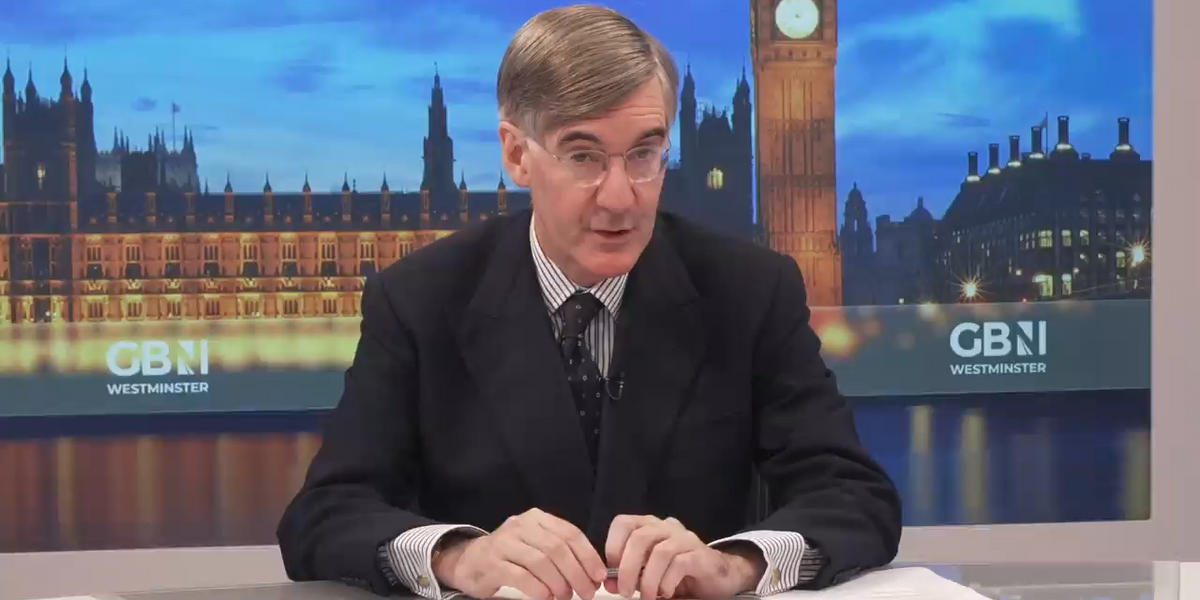Labour are sacrificing jobs on the altar of Net Zero, says Jacob Rees-Mogg

- by Admin
- September 11, 2024

Earlier today, the government announced a £500million subsidy package for the Port Talbot based Tata Steel, hailing the agreement as a new and improved deal for the company.
The money will go towards funding a greener electric furnace in place of the current blast furnace, which will be closed.
This closure will lead to around 2,500 workers being made redundant in the short term, and up to 300 more expected to lose their jobs later.
The new technology will not be able to make new steel. Rather, it will melt down and refashion scrap steel and iron.
Jacob Rees-Mogg has accused the government of being ‘in denial’ about the impact of Net Zero legislation on Britain’s energy and manufacturing sectors
GB News
The Tata steel crisis set alight five years ago when the company, a huge employer manufacturer in both Wales and the North East of England, announced plans to sell its UK business, leading bosses and many political representatives to lobby for a buyout to save the company, culminating from the £500m payout we’ve seen today.
But why was this crisis ever able to happen in the first place?
Well, the answer is quite simple. Years of escalating interventionists and stifling green and environmental regulations being imposed upon manufacturers has hindered Britain’s ability to make things, to be energy self-sufficient and economical.
In the House of Commons, Reform UK deputy leader Richard Tice raised this issue: “The truth is, and the country needs to know this, that the thousands of jobs and the loss of these blast furnaces announced today is because of both main parties’ obsession with net zero.
“Blast furnaces have been losing money because of high energy costs caused by the very expensive renewable energy.”
To which the minister, Jonathan Reynolds, responded: “I have to tell the Honourable Member that I am afraid he is misinformed as to what this is. There are issues around the competitive cost of industrial electricity in the UK. They are not the issues the Honorable Member is saying.”
Labour is in denial. It is more devoted to sacrificing jobs on the altar of net zero than it is to ensuring economic prosperity. In Britain, along with the EU, we adopted the most aggressive green agenda and policies in the world. And the damage we are doing to our economies has been significant. The potential for further economic damage is catastrophic.
The groundbreaking report from former European central bank chief Mario Draghi, published this week, has issued stark warnings on the potential future of productivity within Europe if investment in manufacturing is not prioritised with urgency.
Mr. Draghi warned European leaders that they would be forced to choose between climate, economic and foreign policy goals if the EU fails to drive forward productivity.
In Britain, we must also heed these warnings. Manufacturing is an essential component of economic prosperity and protecting inefficient, high cost energy manufacturing, carbon, border adjustment mechanism tariffs, will make goods more and more expensive and add to our economic inefficiency.
In truth, the incompatibility of the radical green agenda and prosperity and happiness has never been clearer. It is absolute folly.
We are losing jobs because of a green obsession because we put imposts on energy, which we then pay taxpayers money to countermand through subsidies. It is industrial policy stood on its head.
The Latest News
-
December 21, 2024Inside Britain’s saddest shopping centre: Town centre mall empty just DAYS before Christmas as depressed locals say ‘it’s a disgrace’
-
December 21, 2024High street giants plot new warning to Treasury over retail jobs
-
December 21, 2024Travel news live: Traffic chaos to hit Christmas getaway as weather warnings issued
-
December 21, 2024Daily horoscope: December 21, 2024 astrological predictions for your star sign
-
December 20, 2024Telemark Sprint World Cup: Jasmin Taylor wins gold for Great Britain





